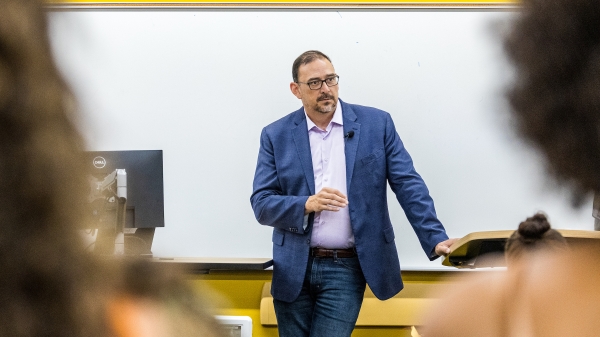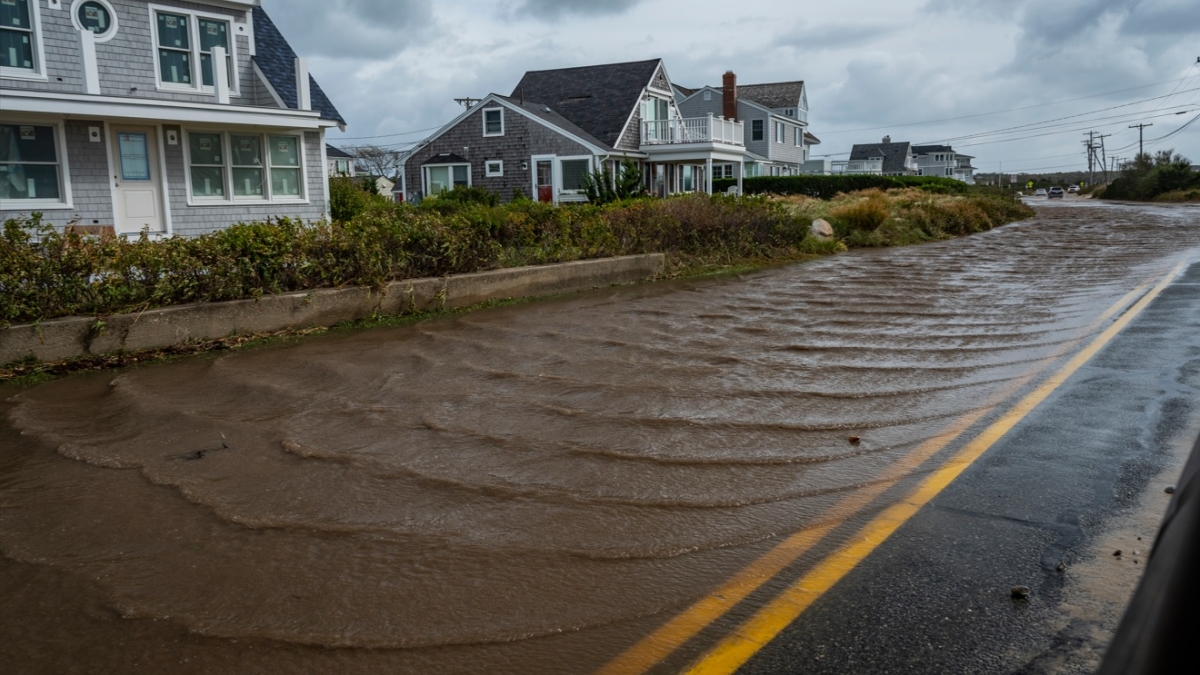Rising sea levels are becoming more frequent along coastal America, and have been accelerating more than ever before, according to the National Oceanic and Atmospheric Administration (NOAA).
Climate change has not only contributed to a significant increase in high-tide coastal floods, powerful hurricanes and years of drought for some, but also negatively impacted the quality of life for thousands of vulnerable residents that otherwise don’t have the means to relocate inland.
A mix of creative policies and societal reimagining are needed to ensure the future of coastal America, a panel of experts suggested during a virtual discussion hosted by New America’s Future of Land and Housing Program (FLH) at Future Tense.
“How do we get there?” asked FLH Director Yuliya Panfil, who moderated the discussion. “How do we get people to think in that frame and move past some of the political and economic constraints that we all know exist?”
Elaine Morales, the director of partnerships and policy at Connective, a nonprofit that provides resources to residents impacted by natural disasters, explained how affordable housing is at a crossroads in Houston, where she’s based, because of increasing costs in an already scarce affordable housing market.
As cities implement climate resilience strategies, she said, policies will be needed to protect against resident displacement, particularly for those who are socioeconomically vulnerable.
“I think there’s a return on investment for resilient homes that shouldn't be sold either to the government or private sector,” said Morales, referring to housing that is built to withstand extreme conditions. “After (Hurricane) Harvey, we see organizations that have come online to elevate the voices of those on the frontlines, and they are working towards environmental justice, equitable mobility, food access, affordable housing, justice as to recovery.”
Brenda Cooper, author of the short story “Out of Ash” and the director of information technology at Washington state-based construction company Lease Crutcher Lewis, emphasized how the company focuses on addressing inequity, an area she believes is an essential part of the solution to the challenges faced by coastal America, where nearly 100 million people live.
“I work for a construction company (rather) than being in a more academic world, and we are focused on purpose. We're focused on building grades. We're focused on DEI activities,” Cooper said. “We're not alone. A lot of the corporations that we know or work with or are familiar with in the Washington state area (are) very focused on making these changes.”
Abrahm Lustgarten, a New America fellow and ProPublica senior reporter, added that a shift in tax structure is needed to create a fairer system and fundamental policies for funding Section 8 housing or schools in adapting coastal communities.
“As soon as you have those relative costs, there's a greater potential to make relatively large investments in response to it or, or compared to it, and that's part of what needs to happen,” Lustgarten said. “A huge component of what probably has to happen is a social reorganization of our values (and) looking at the way that sort of capitalistic mechanism ... incentivizes or don't incentivize the right kind of action and change.”
While reorganizing society economically, socially and politically can seem like a challenge, Tim Robustelli, a policy analyst for New America’s FLH Program, nodded to international coastal communities like Rotterdam in the Netherlands, which is prominently protected by storm surge barriers, dikes and dams, in how they have successfully adapted to live and deal with water and exemplify radical transformation.
“There has to be a very strong emphasis on community engagement and elevating the voices of folks on the ground to make sure that their concerns, their interests, their needs are being properly accounted for,” Robustelli said. “We sort of talked about the need for political will, and perhaps technical guidance and funding can come from Washington or state capitals, but when it comes to planning out what the next move is, I think that listening to folks on the shores in places that are flood-prone is critical.”
The panel was hosted by New America’s FLH Program at Future Tense, which aims to help solve today’s land and housing rights challenges, both in the United States and internationally. Future Tense is a partnership of Slate, New America and Arizona State University that examines emerging technologies, public policy and society.
More Law, journalism and politics

New report documents Latinos’ critical roles in AI
According to a new report that traces the important role Latinos are playing in the growth of artificial intelligence technology…

ASU's Carnegie-Knight News21 project examines the state of American democracy
In the latest project of Carnegie-Knight News21, a national reporting initiative and fellowship headquartered at Arizona State…

Arizona secretary of state encourages students to vote
Arizona Secretary of State Adrian Fontes looked right and left, taking in the more than 100 students who gathered to hear him…
